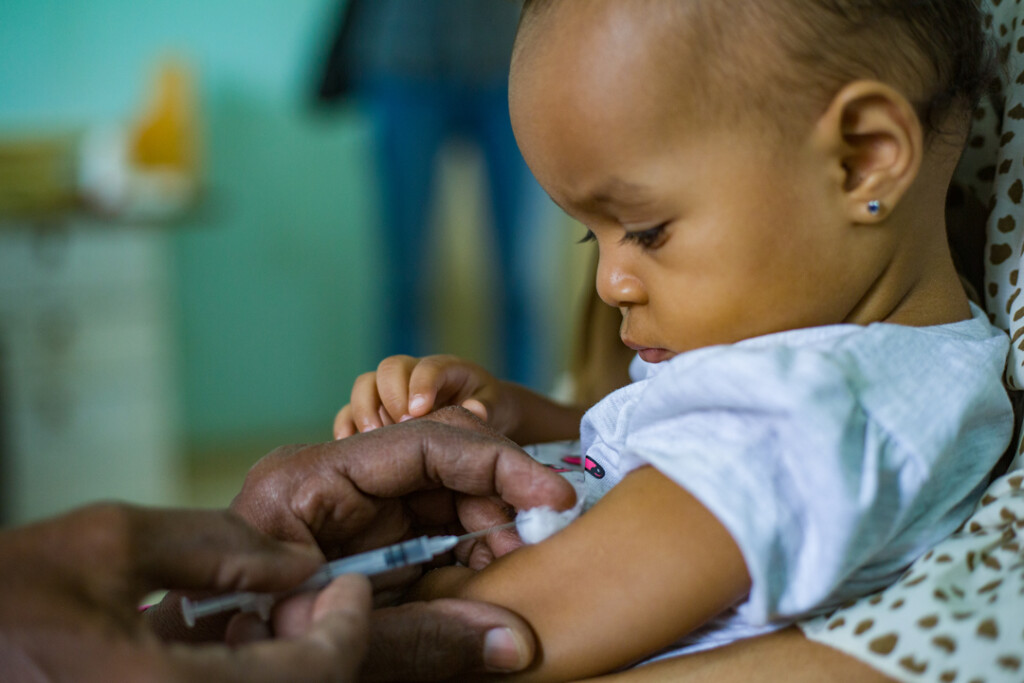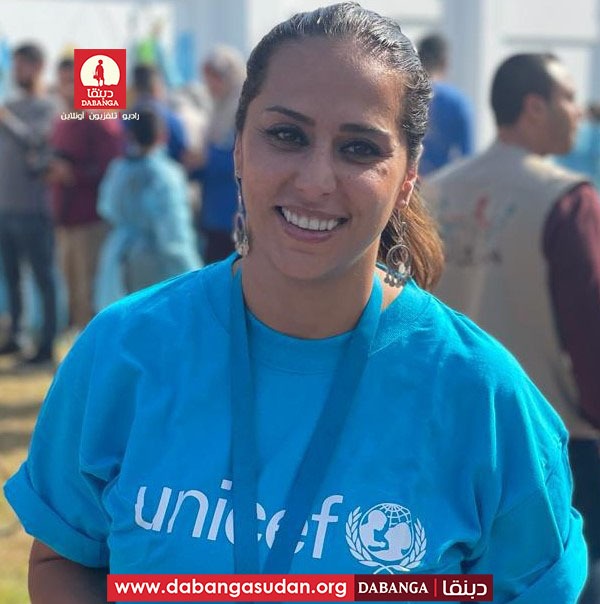UNICEF: ‘Immediate ceasefire essential to enable humanitarian relief in Sudan’

Lugain Asim Alhadi is held by her mother, while being immunised at Gezirat El Feel Health Centre in Sudan in May 2023 (Photo: Ahmed Mohamdeen Elfatih / UNICEF)
Developments such as the reopening of Sudan’s Adré border crossing with Chad present an opportunity to deliver aid, however, an immediate ceasefire is essential to enable humanitarian relief organisations reach those affected by the war.
In an interview with Radio Dabanga on Friday, Mira Nasser, the Sudan Communications and Media Director of the United Nations children’s Fund (UNICEF), laments that “there are limits to what assistance can achieve without real peace and security”.

Zamzam camp, about 14 km south of El Fasher, the capital of North Darfur, is one of the largest camps in Darfur, housing half a million displaced. Many of them have been living there since the first decade of this century because of the devastating war between rebel movements and the Sudanese government, while hundreds of thousands sought refuge in the camp after the war between the Sudanese army and the Rapid support Forces (RSF) broke out exactly 17 months ago.
On August 1, the Famine Early Warning Systems Network (FEWS NET) reported that reasonable evidence indicated famine thresholds (IPC Phase 5) were exceeded in Zamzam camp in June.
Nasser told Radio Dabanga on Friday that she believes that the reopening of the Adré border crossing with Chad is an opportunity to deliver aid, but she considers the rainy season that will last until this month or early October an obstacle to aid reaching more children who need therapeutic nutrition to reduce the spread of malnutrition.
She explained that UNICEF is working with local partners to continue providing services to those affected in Zamzam camp, despite the worrying situation and the continued fierce fighting in and around El Fasher.
Earlier this year, Médecins Sans Frontières (MSF) said a child was dying every two hours in Zamzam camp, something the Sudan government has categorically denied.
The Sudanese government’s Humanitarian Aid Commission said in previous statements: “The talk about the existence of famine in the camp is completely untrue and inconsistent with the conditions that must be met to declare famine.”
‘The reopening of the Adré border crossing represents an important turning point
in reaching more children in Darfur…’
Nasser told Radio Dabanga that UNICEF has been delivering life-saving supplies to Darfur since the start of the war on April 15, 2023, from within Sudan and across the border.
She pointed out that, in cooperation with partners, it is supporting front-line workers in addition to maintaining infrastructure, to support health, education, nutrition, water, sanitation, hygiene and protection services for affected families.
“The reopening of the Adré border crossing represents an important turning point in reaching more children in Darfur, therefore it is of utmost importance that the facilitation of humanitarian aid traffic across the border continues,” she explained. “Though there are limits to what assistance can achieve without real peace and security for all humanitarian workers and the children they serve.
“Children and families have suffered for more than 16 months of ongoing war, and they need an immediate ceasefire now.”
She considered therapeutic feeding as one of the forms of treatment for malnutrition in children and their protection, but she stressed that preventing hunger goes beyond providing therapeutic foods.
‘Sustainable and unhindered access is vital to deliver life-saving services to children
no matter where they are…’
She said that UNICEF is implementing multi-sectoral measures, including providing food, ensuring access to safe water and a healthy environment, as well as treating sick children to prevent malnutrition from spreading further in those areas.
“UNICEF has been able to reach more children with therapeutic food in Darfur, but the current rainy season is restricting access to more children who are in dire need of these treatments, due to poor roads, floods, and collapsed dams.”
She added that in addition to Zamzam camp, several other camps in and around El Fasher, including Abu Shouk and El Salam, have been seriously affected by the current conflict and deteriorating humanitarian situation.
She recalled that UNICEF is working with partners to ensure that life-saving services are delivered to affected areas, with a particular focus on priority areas identified as at risk of famine in the Integrated Phase Classification. “Sustainable and unhindered access is vital to scale up supplies and deliver life-saving services to children no matter where they are.”











 and then
and then